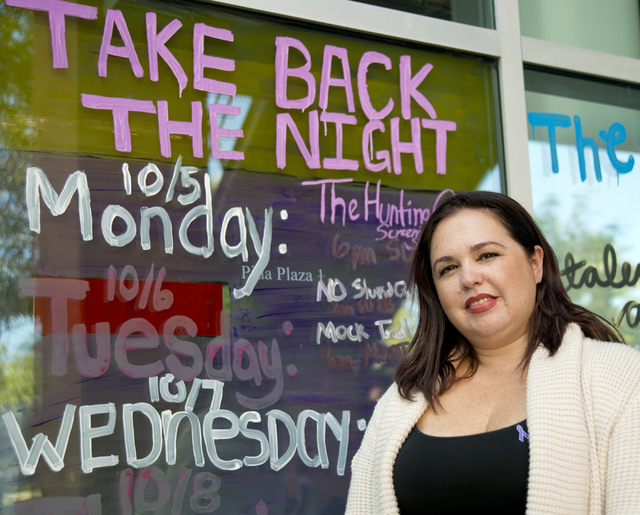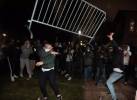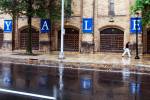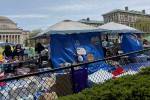UNLV women’s center uses grant to expand reach to LGBT victims of sexual assault
When a sexual assault occurs, survivors face an array of barriers in dealing with the aftermath.
It is no different for students who have to deal with the same psychological issues and logistical nightmares. That is why care advocates for the Jean Nidetch Women’s Center at UNLV exist.
“We are there for the students who walk through our doors,” said Christina Hernandez, the director for the women’s center. “Once they begin meeting with care advocates, we help them with whatever resources we can. A lot of people on campus don’t know these resources exist.”
In 2015, the Women’s Center was able to serve nearly 4,000 students. Through its hotline — 702-895-0602 — it received 189 calls requesting advocacy related to sexual assault, stalking and domestic violence.
The primary task of the care advocate is to offer counseling for students who might need it. Though students often just need someone to talk to, care advocates can go beyond that if more assistance is needed.
Care advocates also help students if they want to press charges if the assault happened on campus or with another student. They can also assist students who plan to go through the Title IX process.
If students decide they want to withdraw from classes, whether it’s for the rest of the semester or longer, care advocates can also guide them through the process of getting a medical withdrawal. The downside is, once students are withdrawn from school, they can’t access the services of the women’s center free.
But if and when they return, care advocates are there to help them ease back into school.
“That is, if they want us to help them,” Hernandez added.
Hernandez said the center can also talk on the students’ behalf with their professors if they need extensions on assignments.
Even beyond resources care advocates can specifically offer, Hernandez said the center has emergency funding to help survivors through many obstacles. If a student needs to get to the doctor or a court hearing but doesn’t have transportation, the Women’s Center can allocate funds to the students depending on the need. Advocates aren’t allowed to drive students on their own.
Hernandez said part of the approach of the Women’s Center has been to be proactive as opposed to reactive.
“We want to anticipate the need,” she added.
Last fall, as a way to work with populations that might be overlooked when it comes to sexual assault, the women’s center obtained a grant to have a care advocate specifically for LGBT students.
Hafid Acosta Gomez, the LGBTQ care advocate, said he has spent the last few months putting up posters and doing outreach to make students aware of this resource.
He said campuses across the country are starting to look at the unique barriers students face when it comes to reporting sexual assault.
“Some students might not be willing to tell people that they do identify as queer,” he said. “It might prevent them from going to the police or seeking help.”
Part of his job is to train other care advocates so they know how to approach sensitive situations.
“Though we’ve made progress as a society, we still have a lot of shaming,” he added.
He said some students internalize their hate and think the reason they were assaulted is because they are LGBT. “It just adds a layer to what they are experiencing (as a survivor),” Gomez said.
Though the position is new, he already has a vision for how it can grow. “I want to start to do outreach for other marginalized groups,” he said, “people who might have a disability or (are) dealing with a disorder.”
Gomez also wants to do more outreach to men who face stigma when they report rape.
“A lot of cisgender men think they can’t be raped,” he said. “Because of that, their experiences are under-reported.”
The center has been working to create an advisory group to get feedback on services available. Though the initial purpose was to attract survivors, the center is focusing on faculty members who have questions.
“Many of them weren’t aware of the services we have on campus,” she said.
Hernandez still hopes to create a group for survivors to learn from their experiences.
Regarding the future of the women’s center and care advocate program, Hernandez said the center has been working to get the Student Health Center as a place to offer sexual assault kits.
“As of right now, if a sexual assault occurs on campus, a student would have to go to UMC to get examined,” she said. “If you don’t have transportation, that is a barrier. We want to make sure access is easier for students so they know the option is there.”
Having sexual assault nurse examiners on campus has been in the works for a while, Hernandez said.
“It’s just getting all the paperwork in place to make that possible,” she added.
Hernandez said the women’s center is working to expand its hotline to the College of Southern Nevada this fall and foresees offering it at Nevada State College in the future.
“We would love to have care advocates on those campuses down the line,” she said. “That would be great to have in the future.”
To reach Henderson View reporter Michael Lyle, email mlyle@viewnews.com or call 702-387-5201. Find him on Twitter:@mjlyle.




























